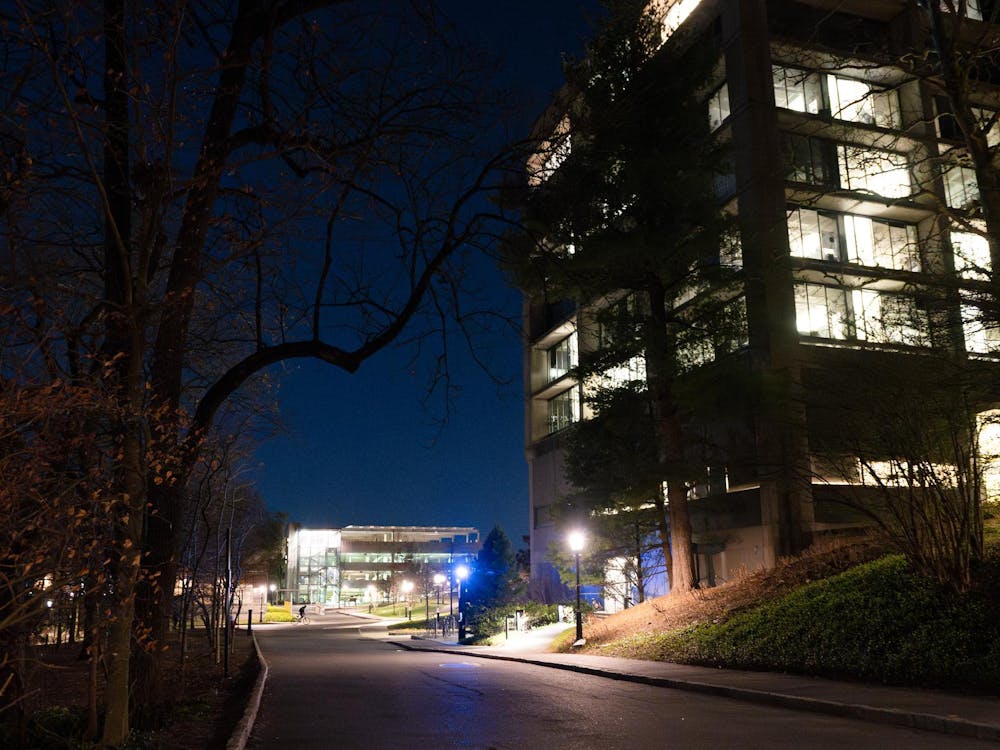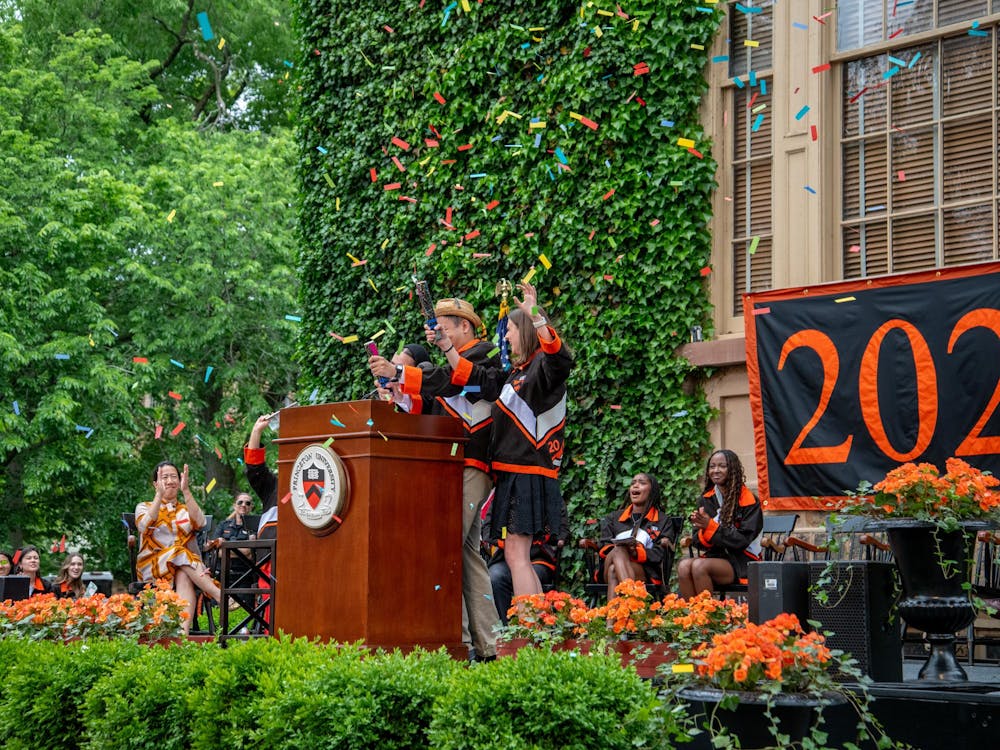This situation is quite inefficient. Given some thought, it becomes clear that waiting in one big line to dig into a sequence of buffet items, even under the most favorable assumption that everyone wants all items on offer, is never faster than serving the food in separate and shorter lines for every item. Thus, for the sake of making everyone’s lunch break more enjoyable, I encourage all dining hall patrons to slay that basilisk with their courage to simply step up to any available food item and form smaller lines.
But waiting in line is not just part of the dining hall experience at Princeton; students seemed so eager to wait in line last Dean’s Date that even the inclement weather of that day did not deter some brave souls from joining a line that stretched from the University Chapel to West College to obtain one of a limited number of free sweatpants. This enthusiasm for lines extends to waitlists for courses and study breaks of all sorts. However, as is true in the dining hall, long lines are not necessarily the best means of rationing scarce items for which demand exceeds supply.
In many campus situations, auctions might be a feasible and more efficient alternative to lines. In the same way that Paw points and the Passport to the Arts are handled via credits on our Proxes, there could be a certain amount of “free stuff points” given to every student in the beginning of the year with which we could bid for free gear or treats such as a free massage. Contrary to the current system, where the same few people might get all the free things first at all events, such a system would make sure that those who value an item highly will be more likely to get it and that everyone gets some free gear or a massage at some point in the year.
The advantage of such a system lies in the fact that a distributor’s interests might be more aligned with the outcome of an auction than that of waiting in line. Optimally, one would rank bidders for an item by the total benefit which they themselves and society derive from their getting the item. In the real world, this issue would be resolved by using willingness to pay as a proxy for that benefit and auctioning off the good in question.
Waiting in line, on the other hand, is not such a good proxy for the benefit of a good. For instance, when an Ecology Representative was handing out subsidized water filters in Frist last week, or when a popular professor opens up a waitlist due to high demand for his course, it is not clear that the ability to be first in line will be a good indicator for the frequent usage of a water filter or the potential to contribute to discussion in a seminar. Moreover, free time to stand in lines is not evenly distributed among students. In fact, in the case of a study break, waiting in line might perversely reward those with plenty of time to spare for whom the promised treat has the least value, since they have little studying from which to break.
While the drawbacks of the use of money in the real world are the uneven distributions and an imperfect measure of consumption benefits, a point auction system with equal initial endowments and no alternative uses for the points might remedy some of this distributional injustice. This could probably also be easily tagged onto Princeton’s existing payment systems. In fact, the Massachusetts Institute of Technology Sloan School of Management already uses a similar point bidding system for its course enrollment process.
Granted, there might be other benefits of long queues. For instance, the group experience of waiting might serve to engender a feeling of unity or inculcate respect for traditional hierarchies. However, where such ritualistic functions are considered secondary or detrimental, we should nonetheless be willing to examine and, if necessary, improve the way “free stuff,” courses and other things are distributed on campus. A viable option might be the increased use of auctions. After all, it’s about time we bid farewell to long waits in line.
Gregor Schubert is an economics major from Leipzig, Germany. He can be reached at gregors@princeton.edu.







